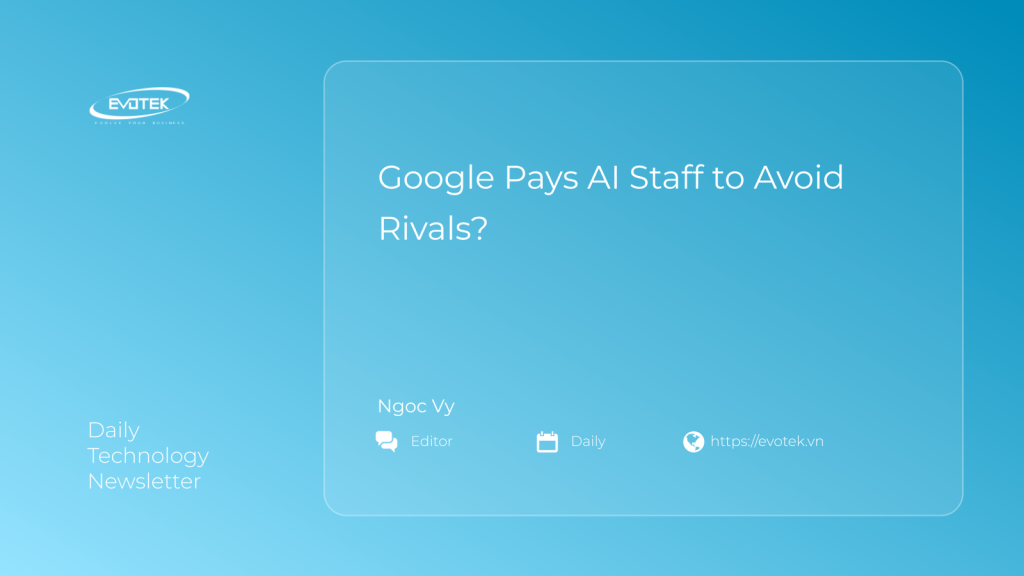In a fierce battle for AI dominance, Google’s DeepMind is reportedly employing a unique strategy: paying some AI staff in the U.K. to essentially do nothing for up to a year, according to Business Insider. This approach uses “aggressive” noncompete agreements to prevent them from joining competitors.
This practice, while ensuring talent doesn’t immediately boost rival firms, can leave researchers feeling detached from the rapidly evolving AI landscape. They are paid during this period, which can be seen as extended paid time off (PTO).
While the U.S. Federal Trade Commission (FTC) banned most noncompetes last year, this ban doesn’t extend to DeepMind’s London headquarters. The controversy surrounding these agreements is highlighted by recent comments from Microsoft’s VP of AI, who mentioned on X (formerly Twitter) that DeepMind employees have expressed frustration about escaping these noncompete clauses.
Dear @GoogDeepMind ers, First, congrats on the new impressive models.
Every week one of you reaches out to me in despair to ask me how to escape your notice periods and noncompetes. Also asking me for a job because your manager has explained this is the way to get promoted, but…
— Nando de Freitas (@NandoDF) March 26, 2025
TechCrunch reached out to Google for comment but received no immediate response. Google, however, told Business Insider it uses noncompetes “selectively.”
The AI Talent War: A New Front
This strategy highlights the intense competition for top AI talent between major players like Google, OpenAI, and others. Retaining skilled AI researchers and engineers is crucial for maintaining a competitive edge in this rapidly advancing field.
Implications and Ethical Considerations
This practice raises questions about the ethical implications of noncompete agreements and their impact on innovation. While companies have a right to protect their intellectual property, overly restrictive noncompetes can stifle talent mobility and hinder the overall progress of the AI industry.
Keywords: Google, DeepMind, AI, Artificial Intelligence, Noncompete Agreements, AI Talent, Tech Industry, Innovation, Research, Talent Retention

 日本語
日本語 한국어
한국어 Tiếng Việt
Tiếng Việt 简体中文
简体中文